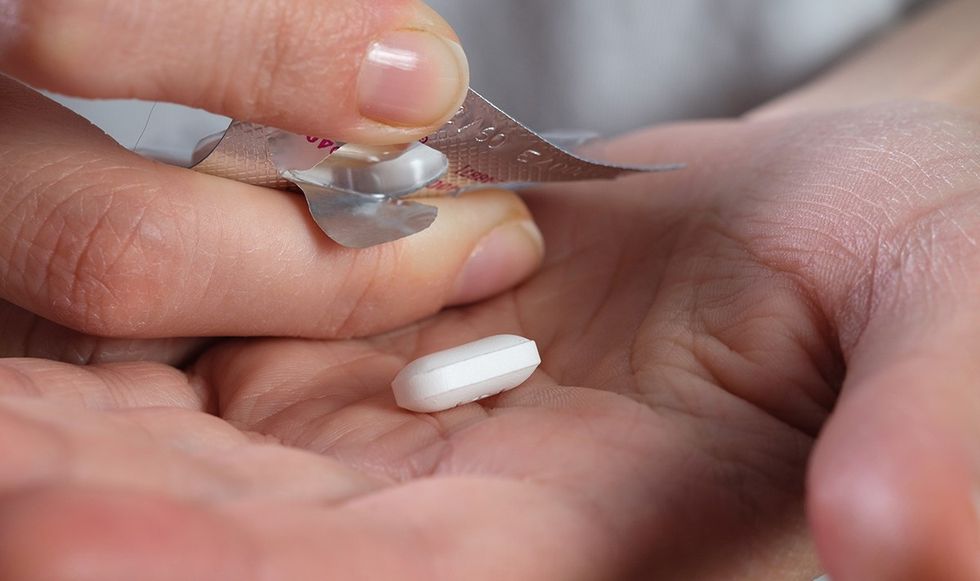A groundbreaking study has revealed that regular aspirin use can significantly reduce the risk of “one of the worst cancers”.
Researchers from University Hospital Southampton and the University of Southampton found that aspirin cut the risk of pancreatic cancer by 40 per cent in diabetics and 20 per cent in the general population.
The study, funded by the PLANETS cancer charity, analysed data from nearly 10,000 participants in the UK Biobank. This discovery offers new hope in the fight against pancreatic cancer, which is notorious for its poor survival rates and late-stage detection.
The research team examined data from the UK Biobank, a cohort of 500,000 individuals aged 37 to 73 recruited between 2006 and 2010. Their findings, published in the journal Pancreatology, represent the largest study to date on the association between aspirin use and pancreatic ductal adenocarcinoma cancer (PDAC).
 Getty Images
Getty Images The study demonstrated that the risk reduction remained consistent at both two and five years from recruitment. Previous research has suggested that aspirin may block the production of enzymes that increase inflammation and fuel cancer cell growth.
The link between diabetes and pancreatic cancer is particularly concerning. People over 50 who develop new-onset diabetes are 10 times more likely to be diagnosed with pancreatic cancer than the general population. Whilst the exact reasons for this connection remain unclear, both conditions affect the pancreas and involve sugar intolerance.
Pancreatic cancer, especially the most common form known as pancreatic ductal adenocarcinoma cancer (PDAC), has the lowest survival rate of any cancer. It is typically detected at an advanced stage, with a five-year survival rate of just five per cent.
This makes the potential protective effects of aspirin even more significant for those at higher risk.
Aspirin’s potential cancer-prevention effects extend beyond pancreatic cancer. Previous studies have shown its protective role against other types of cancer, including colorectal and breast cancer. Research suggests that aspirin’s anti-inflammatory properties may play a crucial role in reducing cancer risk.
However, it’s important to note that the relationship between diet, supplements, and cancer prevention is complex.
A recent review in Cancer Screening and Prevention highlighted that while certain dietary patterns and supplements may lower cancer risk, excessive intake of some nutrients can be harmful.
Nonetheless, the new findings on aspirin’s impact on pancreatic cancer risk add to the growing body of evidence supporting its potential as a cancer prevention tool.
Doctor Zaed Hamady, a consultant hepatobiliary, pancreatic and robotic surgeon at University Hospital Southampton, said: “Pancreatic cancer is rated to be one of the worst cancers and almost everyone affected by pancreatic cancer will die within five years of their diagnosis, with long-term survival limited to those diagnosed with early-stage disease suitable for curative surgery.”
LATEST HEALTH DEVELOPMENTS

The new findings on aspirin’s impact on pancreatic cancer risk
Getty Images
He continued: “In addition, the trend of pancreatic cancer is increasing in the UK as well as worldwide in a similar way to other cancers and we know there is a particular association between the development of diabetes and pancreatic cancer.
“This large study demonstrates that commonly-used aspirin, which is traditionally associated with reducing the risk of heart attacks or heart complications, can prevent the development of pancreatic cancer.
“We found there is a 20 per cent reduced risk among the general population, which has been demonstrated in the past with other cancers, particularly colon, but can now be replicated in pancreatic cancer.
“However, what is more striking is that the preventative effect is stronger in people with diabetes, with 40 per cent less risk in this patient group.
“Given the association of diabetes with pancreatic cancer risk and the associated poor outcomes for everyone affected, this is a very significant finding.”